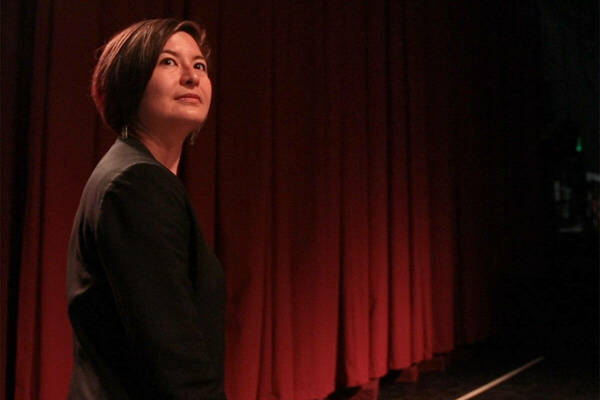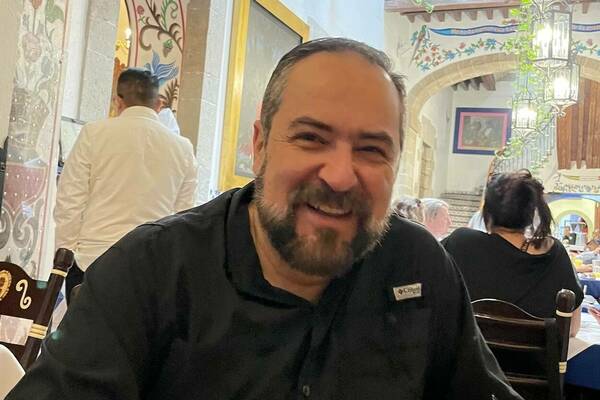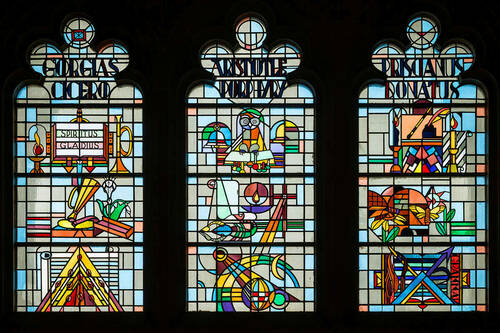
Three faculty members in the College of Arts & Letters have won National Endowment for the Humanities fellowships, extending the University of Notre Dame’s record success with the federal agency committed to supporting original research and scholarship.
Sara Bernstein, an associate professor in the Department of Philosophy; Tarryn Chun, an assistant professor in the Department of Film, Television, and Theatre; and Katie Jarvis, the Carl E. Koch Associate Professor in the Department of History, are among the class of fellows announced by the NEH this week.
Since 2000, Arts & Letters faculty have received more NEH fellowships than any other private university in the country. NEH fellowships are competitive awards granted to scholars pursuing projects that embody exceptional research, rigorous analysis, and clear writing.
“We are thrilled and proud that these members of our faculty are continuing Notre Dame’s unprecedented success in earning NEH fellowships and grants,” said Sarah A. Mustillo, the I.A. O’Shaughnessy Dean of the College of Arts & Letters. “These awards recognize the outstanding research that is happening here across a range of disciplines, the creativity and originality of our scholars, as well as the excellent support provided by the Institute for Scholarship in the Liberal Arts throughout the application process.”
Notre Dame also received a significant grant for a digital scholarship project led by Robert Goulding, director of the Reilly Center for Science, Technology, and Values, in partnership with the Navari Family Center for Digital Scholarship and director Scott Weingart as well as collaborators at the University of Oxford’s Bodleian Library.
“These awards recognize the outstanding research that is happening here across a range of disciplines, the creativity and originality of our scholars, as well as the excellent support provided by the Institute for Scholarship in the Liberal Arts throughout the application process.”
Metaphysical questions
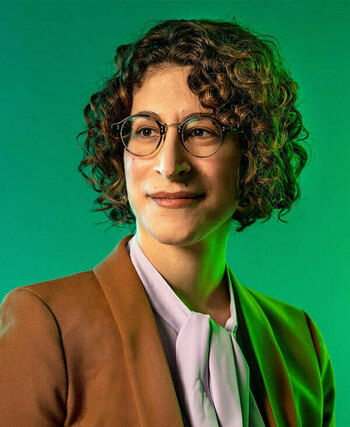
Bernstein will examine how different forms of inequality interact in ways that exacerbate one another in her project, titled “The Metaphysics of Intersectionality.”
Metaphysics is the study of fundamental reality, and metaphysicians examine the nature of things like space, time, causation, and possibility. In recent years, Bernstein said, metaphysicians also have turned their philosophical attention to the social world to explore the nature of social entities, including corporations, social groups, gender, and race.
Bernstein will explore the metaphysics of intersectionality — the idea that various forms of social oppression interact and intersect in ways that are greater than the sum of their components. The metaphysics of social categories is key to helping anyone understand how various factors or circumstances have shaped their identity, she said.
“For instance: How would you have been a different person if you had been a different biological sex than you are? That is, in many ways, a metaphysical question about what you hold fixed and what you vary in the worlds where you are different,” Bernstein said.
“Would you have had exactly the same personality and preferences, or have those things been shaped by social forces related to the social categories to which you belong? In this way, metaphysics can help us understand who we are through who we might have been.”
Bernstein, who is also a Gender Studies Program affiliate, will complete four papers during her fellowship. She plans to present her research at a meeting of the 2023 American Philosophical Association, the California Metaphysics Conference at the University of Southern California, and at other universities.
Artistic spectacle and technological excess
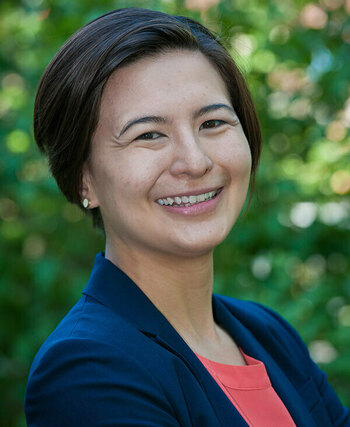
Chun, who studies Chinese theatre and visual culture, will investigate connections between aesthetics and technology for her project, “Spectacle and Excess in Global Chinese Performance.”
Since the opening ceremony of the 2008 Beijing Summer Olympics, large-scale multimedia theatre has become a prominent performance genre in China and throughout the Chinese-speaking world.
The genre, which appeals to popular tastes and is often treated dismissively by critics and scholars, includes state-sponsored propaganda theatre, shows at popular tourist destinations, and commercial theatre adaptations of science fiction and internet novels. Chun’s research examines how all of these forms capitalize on the potentials of new media and technology in performance for artistic, commercial, social, and political ends.
Chun’s interest in the topic grew from her fascination with how theatre is made from a technical perspective, and from her first book project, which takes a more historical approach to the complex relationship between technology, theatre, and politics in China.
“This research is particularly relevant as theatre absorbs lessons learned from being online during the pandemic and looks toward reinventing itself for post-pandemic stages and audiences,” said Chun, who holds a concurrent appointment in the Department of East Asian Languages and Cultures and is a faculty fellow at the Liu Institute for Asia and Asian Studies. “We’re at a moment when theatre artists worldwide are grappling with how to sustain live performance in a digital world and under ongoing pandemic conditions.”
Provided travel to China is possible, she’ll attend performances, interview theatre artists, and gather materials such as programs, set design drawings, production photographs and recordings, as well as work on drafting a book manuscript.
Forgiveness in Revolutionary France
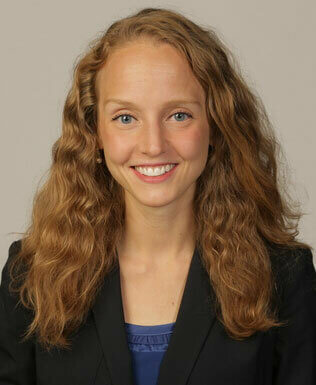
Jarvis, a historian of early and late modern France, will spend her fellowship writing her book, Democratizing Forgiveness in Revolutionary France, 1789–1799, which examines how everyday citizens forged modern politics and society by reinventing reconciliation.
Jarvis is exploring how the revolutionaries, after wresting the power of pardon from the king and the Church, refashioned forgiveness en masse and channeled political overtones into routine citizen relationships.
“My project analyzes how individuals deployed institutions of the state or Church to effect these very personal repairs,” said Jarvis, who is also a faculty fellow of the Nanovic Institute for European Studies and Kellogg Institute for International Studies and affiliated faculty in the Gender Studies Program. “Enduring sociopolitical change cannot take root through constant, intense conflict alone.”
Jarvis explains that people “repaired broken bonds by arbitrating local disputes, forgiving personal loans, and settling debt in court. And they reconceptualized reconciliation through sacramental confession, innovative religious cults, and the education of youth.”
The study begins from an interdisciplinary framework, seeking to understand decisional forgiveness, which produces pragmatic resolutions through practices and procedures, rather than emotional forgiveness, which requires one party’s change of heart.
Jarvis, who plans to conduct research in France and present her work at conferences during her fellowship, became interested in the topic when doing research for her book Politics in the Marketplace: Work, Gender, and Citizenship in Revolutionary France, which won the American Society for Eighteenth-Century Studies’ Louis A. Gottschalk Prize in 2020. She noticed that revolutionary ideas, including those about equality, crept into civil court transcripts about disputes among neighbors.
“This made me wonder how these micro-resolutions and other forms of procedural forgiveness became a way for citizens to invent and enact sweeping revolutionary transformations through everyday life,” she said.
Preserving digital projects
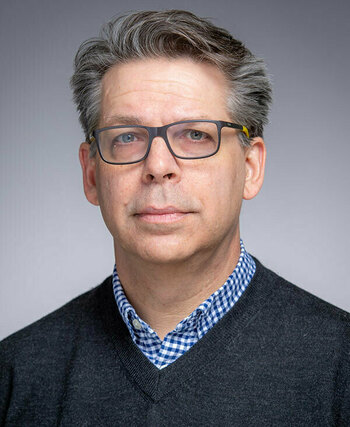
With a grant through the NEH’s New Directions for Digital Scholarship in Cultural Institutions program, scholars at Notre Dame and Oxford will develop a new platform that makes digital archives easier to analyze, present, and reuse.
In the early days of digital humanities, Goulding said, developers constructed systems of data storage and retrieval for their projects, based on needs of the time. Today, many of these projects are stuck in obsolete systems — they cannot be easily accessed by researchers, nor can they be added to or extended, or combined with other similar projects.
“This project, utilizing the expertise of researchers and developers at Notre Dame and the University of Oxford, promises to give new life to aging digital projects and preserve them in perpetuity,” said Goulding, who is also an associate professor in the Program of Liberal Studies and director of the History & Philosophy of Science Ph.D. program.
Goulding will lead the development of a proof of concept for an interoperable text framework (ITF) — a loose term for a body of conventions and contracts that specify how to format data and its associated metadata so it can be used by multiple different platforms. The team plans to develop an enhanced, accessible platform capable of hosting images alongside complex textual transcriptions and diagrams with contemporary navigational and annotation tools.
To test the platform, the team will upgrade an older digital project — “The manuscripts of Thomas Harriot (1560–1621),” which Goulding co-edited — that exemplifies the challenges ITF might face in its development and the kinds and scale of problems it will solve.
The 8,000 pages of Harriot’s manuscripts are a highly unordered treasure trove of mathematical findings, personal letters and notes, experimental reports, alchemical trials, drawings, geometric diagrams, and maps of the moon and Sun, all written in a mix of Latin, English, mathematical symbolic notation, and a script Harriot invented to transcribe the language of the Carolina Algonquian Indigenous peoples he encountered on his trip to Roanoke.
The two previous attempts to print the entire corpus of Harriot’s writing — in the early 19th century by Oxford scholars and in the 1970s — failed because of the vast complexity of the material, its disordered state, and the need for every one of the 8,000 pages to be placed in an interpretive framework, Goulding said. The online publication of the manuscripts in 2012 promised to address these issues, but foundered because of software limitations and standards of that era.
“This revival of the project promises to make these manuscripts available to all,” Goulding said, “completing a project begun 200 years ago at the Bodleian Library.”
